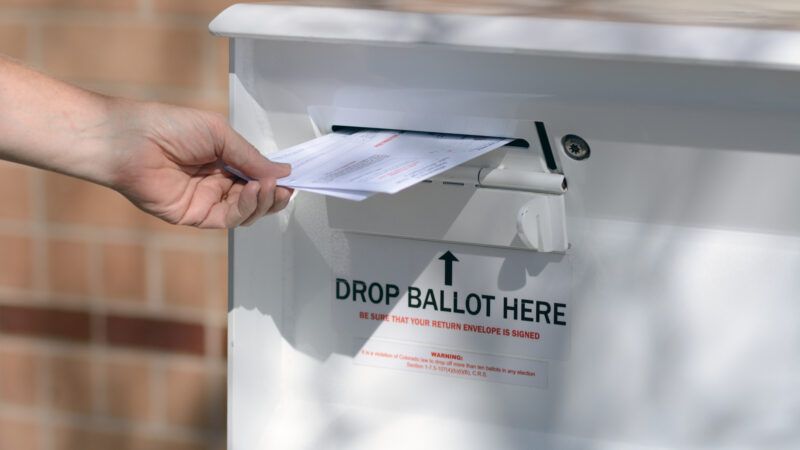The Wisconsin Supreme Court Just Made Ballot Drop Boxes Illegal
The ruling has been hailed as a fraud-reducing measure. The only problem? A vanishingly low incidence of fraud in the first place.

On Friday, the Wisconsin Supreme Court issued a ruling which rendered most ballot drop boxes illegal in the state. The Court found that state law, which requires that mail-in ballots be delivered to a "mailbox," does not allow "delivery to an unattended ballot drop box." The ruling stands as a victory for Republicans in the state, who have consistently attempted to outlaw ballot drop boxes to reduce the incredibly rare phenomenon of voter fraud.
"Today's ruling is a massive victory for election integrity," wrote Paul Farrow, the chairman of the Wisconsin GOP. "Democrats have long abused the practice of ballot harvesting, which undermines voter confidence by interfering with the appropriate chain of custody of ballots—but with today's decision, they'll be forced into a fair fight that holds them accountable for their record."
Wisconsin Democratic Party Chairman Ben Wikler wrote in response to the ruling that "[n]o matter their politics, those who believe in democracy strive to ensure that every eligible voter can cast a ballot. With its ruling today, the Wisconsin Supreme Court is making it more difficult to vote. It's a slap in the face of democracy itself."
Former President Donald Trump weighed in on the ruling on social media, arguing that it should somehow apply to past elections. Following the ruling, Trump wrote on the conservative social networking site Truth Social that Wisconsin House Speaker Robin Vos "has a decision to make! Does Wisconsin RECLAIM the Electors, turn over the Election to the actual winner (by a lot!), or sit back and do nothing as our Country continues to go to HELL? Brave American Patriots already have a Resolution on the Floor!"
However, concerns cited by Republicans—that drop boxes lead to increased voter fraud via "ballot harvesting"—are overblown. As CNN reports, ballot drop boxes are "designed and set up to securely receive ballots without tampering, theft, or other kinds of fraud—they are designed with anti-tampering measures, affixed to the ground, made with durable materials, and often monitored by video surveillance."
Research shows that voter fraud concerns are often overstated and exaggerated. A 2007 report from the Brennan Center for Justice found vanishingly low rates of confirmed voter fraud, "between 0.0003 percent and 0.0025 percent," arguing that "[i]t is more likely that an individual will be struck by lightning than that he will impersonate another voter at the polls." A Washington Post report on the 2016 election found just four confirmed instances of voter fraud.
But in the wake of Trump's loss in the 2020 election, Republican politicians proliferated claims of widespread voter fraud. Several states opened up baseless investigations into the election and conducted lengthy recounts, with Republican lawmakers hoping to manifest enough evidence to justify "decertifying" states' electoral college votes. In Wisconsin, claims of election fraud continue to dominate in the state Legislature, taking the form of an ongoing investigation headed by a former Wisconsin Supreme Court justice (who was recently found guilty of contempt for refusing to comply with open records requests about his apparently partisan review of the election two years ago).
The available evidence indicates that the United States has incredibly secure elections. Attempts by politicians to sow doubts about election integrity and pass laws that make voting harder are largely intended to tip electoral scales.
However, voter suppression claims also suffer from exaggeration. Current evidence indicates that many "voter suppression" measures, like voter ID laws, don't significantly reduce voter turnout. (Though they also don't significantly reduce voter fraud either.)
Contemporary political arguments around how elections are conducted and who can vote serve largely to energize voters from both parties while creating the impression that elections are illegitimate no matter which party wins.
